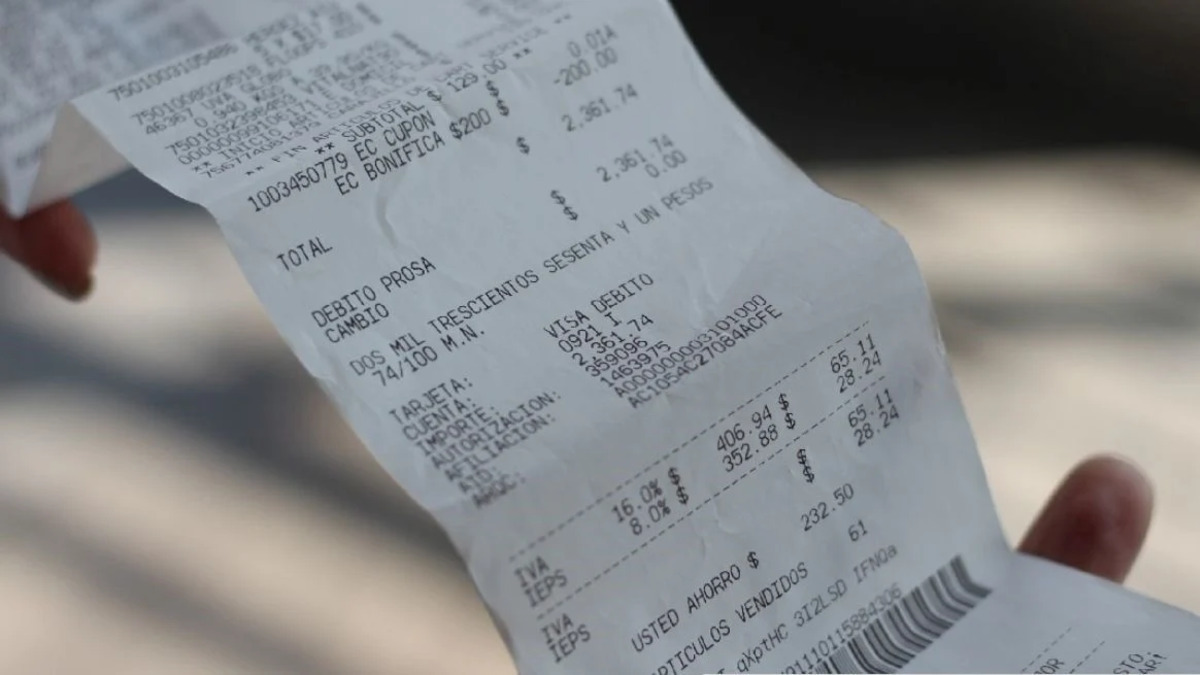"Tax reform could lower prices by up to 40%": the national government is considering a structural change.


What would happen if Argentina stopped taxing consumption at every step of the chain? The question runs through official offices, private payrolls, and technical discussions. And the answer leaves no room for doubt: tax reform could transform prices, boost activity, and ease the burden without defunding the state. Thegovernment knows this and has it on its radar.
Today, more than half the price of what Argentines consume is due to taxes. Whether it's food, clothing, footwear, cars, or household appliances, the tax burden distorts the pricing system and erodes purchasing power. It's not just the VAT: it also includes Gross Income Tax, municipal taxes, hidden withholdings, and cascading levies. The result: an opaque, regressive system that serves informality. This is indicated by the analysis by Damián Di Pace , director of Focus Market.
#Taxes What would the economy be like? With taxes vs. lowering taxes? A new, lighter tax structure that eliminates taxes like gross income and debit and credit taxes, and reduces VAT and income tax? It's expensive in terms of taxes in dollars!!!
According to a simulation based on comparative structures, a bottle of milk that costs $2,650 could drop to $2,232 if cumulative taxes are eliminated and VAT is halved. Bread would go from $1,700 to $1,470; noodles, from $1,571 to $1,323; a kilo of beef, from $12,999 to $10,761. The difference isn't technical: it's daily, visible, and concrete.
The government is evaluating various models to simplify the current system without compromising revenue collection. These include eliminating the Gross Income Tax, the debit and credit tax, and moving toward a reduced VAT for essential products. With a more streamlined structure, prices would drop without the need for controls or freezes.
Supermarket chains warn that municipalities and provinces are raising taxes above inflation, with rates that have no compensation and that end up being passed on to families. Safety and Hygiene, for example, has become a parallel fund. The warnings have already reached the Ministry of Commerce.
Personal loans also bear the cost of this scheme. In some cases, up to 50% of the amount requested is taken by the treasury. It's a trap for employees and a barrier to consumption. The banking chambers have already warned that a redesign is urgently needed to unify criteria and restore the incentive system.
The Big Mac Index, compiled by The Economist , shows this ironically. In Argentina, a medium-sized combo costs $10,900. Forty-seven percent of that price is tax. Only Switzerland ranks higher in the world ranking. If the reform under consideration were implemented, the price would fall to $7,192. This isn't just symbolic: the index summarizes how mass consumption is taxed.
A domestic garment that currently costs $30,000 could sell for just over $19,000. A pair of domestic sneakers would drop from $115,000 to $96,983. And in the case of imported footwear—including tariffs, taxes, and VAT—the drop would be even greater: from $200,000 to just over $162,000.
Poverty Level of Each President in a Democracy? Let No One Play Dumb... Alfonsín 1989 39.8% Menem 1999 26.7% De La Rúa 2001 35.4% Duhalde 2003 51.7% N Kirchner 2006 26.9% CFK 2015 30.1% Macri 2019 35.4%
Source: CEPED-UBA- OJF – INDEC
— Damián Di Pace (@DiPace4) September 30, 2019
In the automotive sector, the cut would be historic. A mid-range car that costs $31 million could be reduced to $18.9 million, a 39% drop. The elimination of internal taxes was already a first step. But the structural burden remains tied to national, provincial, and local taxes, which are compounded one upon the other.
The government isn't proposing to eliminate taxes, but rather to review their weight, how they accumulate, and what incentives they generate. It's not about collecting less, but about collecting more. And above all, about stopping the burden on producers and consumers.
In political terms, the discussion is already on the table. The ruling party is aiming to consolidate its legislative support to move forward with a structural reform that has a real economic impact, not just a technical one. In practice, this would mean restoring competitiveness, improving real income, and boosting key sectors.
Domestic consumption is tied to this knot. If it isn't untied, everything else—taxes, agreements, targets—will be wasted effort. The government is preparing its next steps, knowing that a healthy economy cannot be built on prices inflated by invisible taxes.
elintransigente





